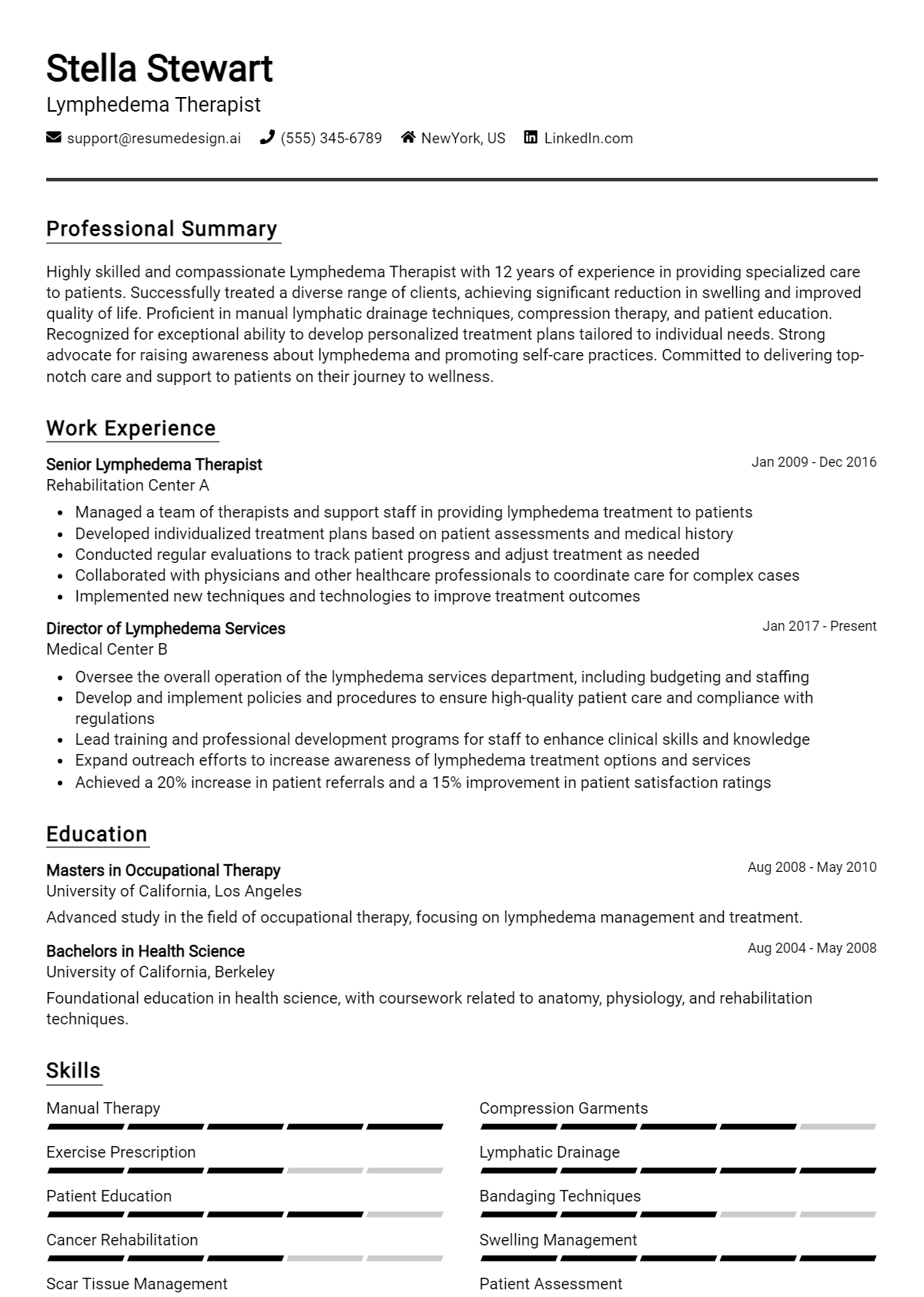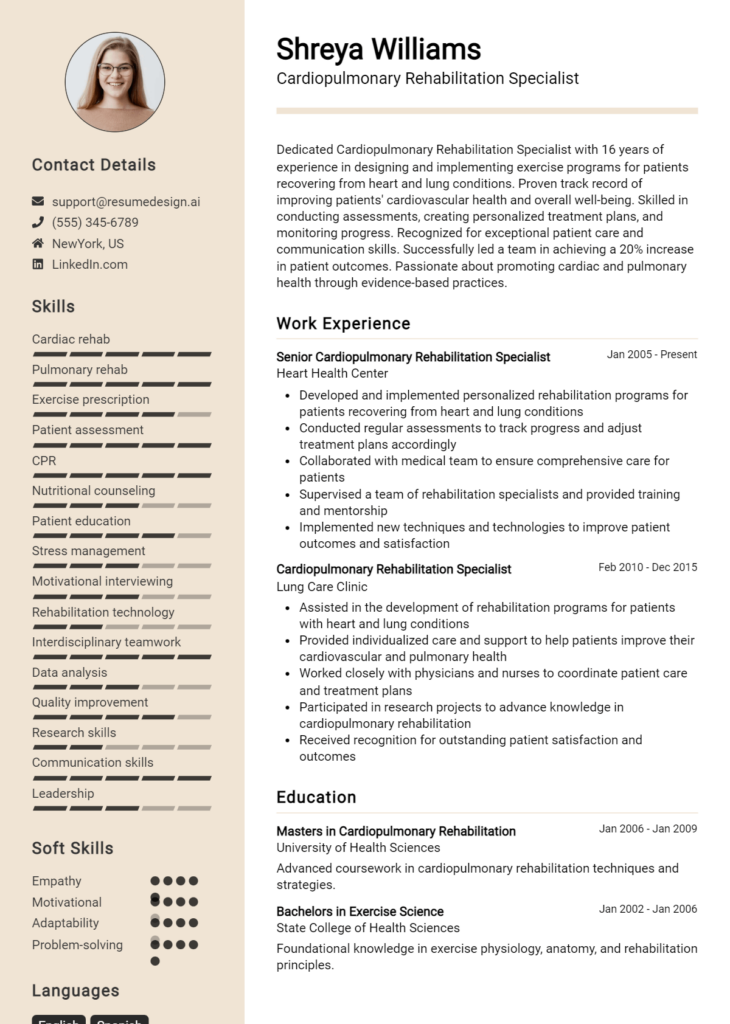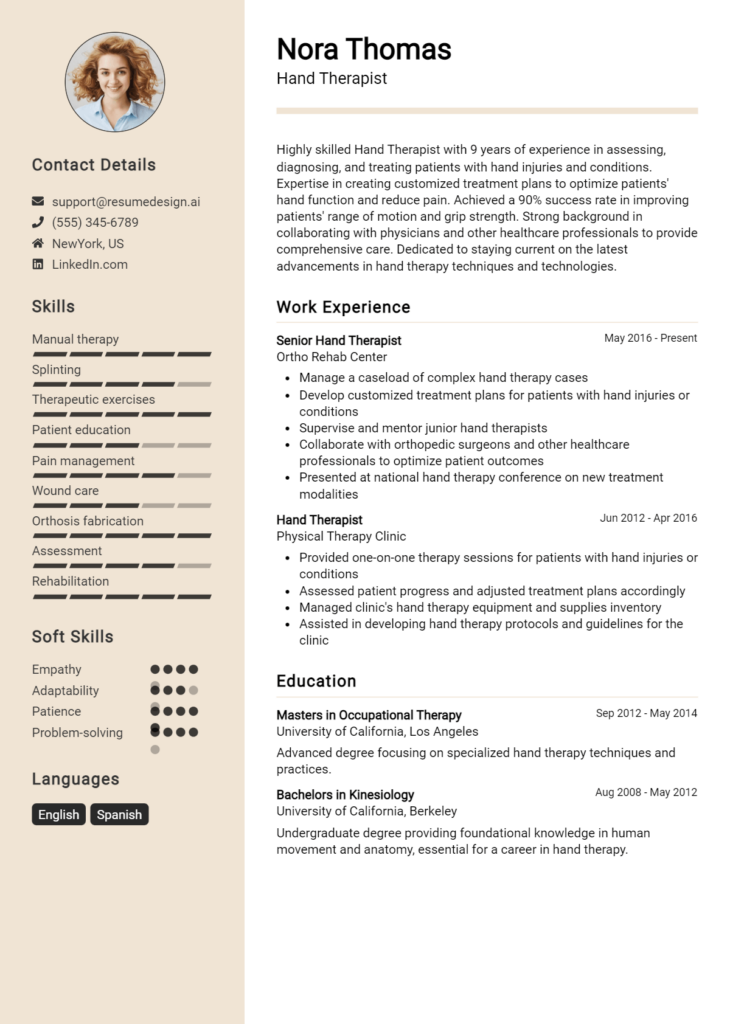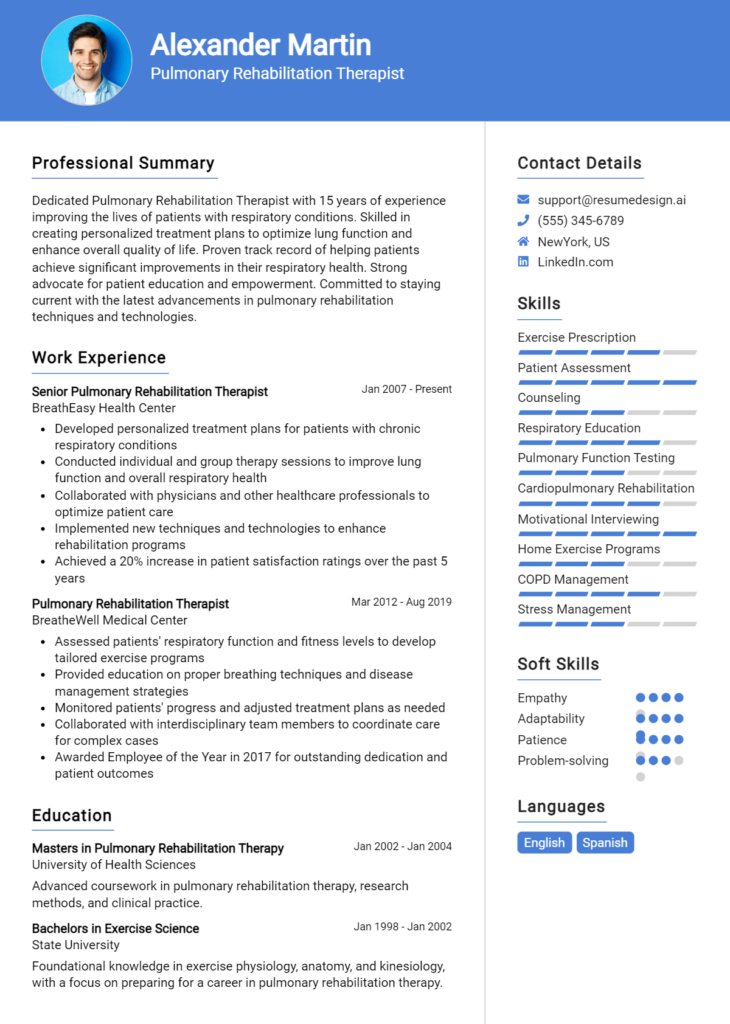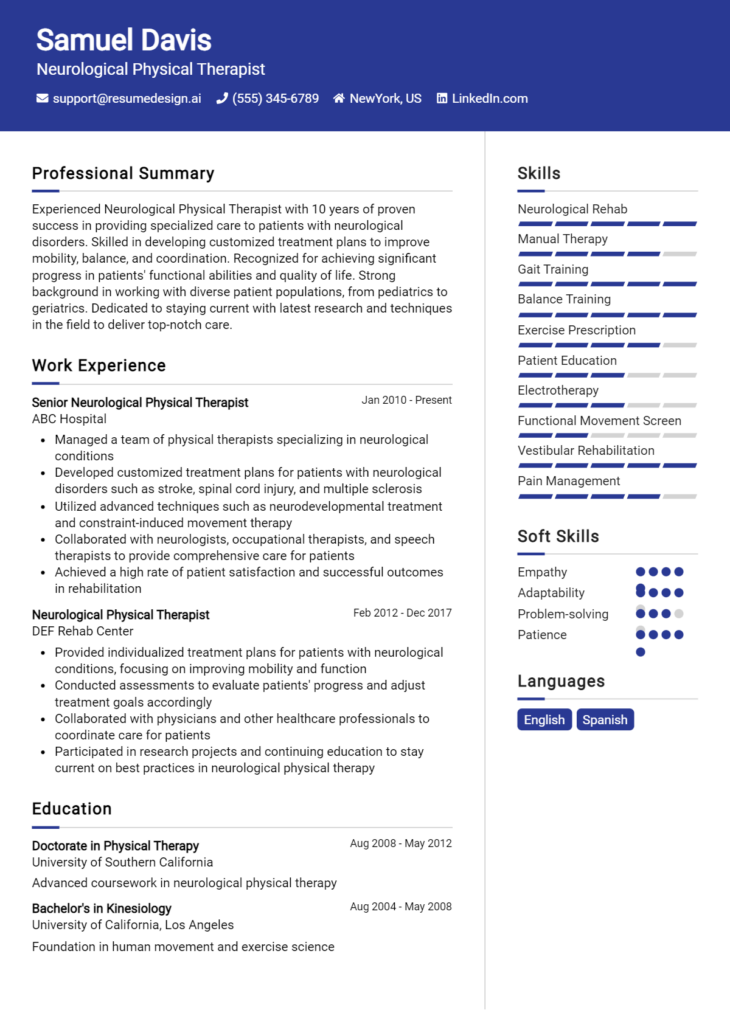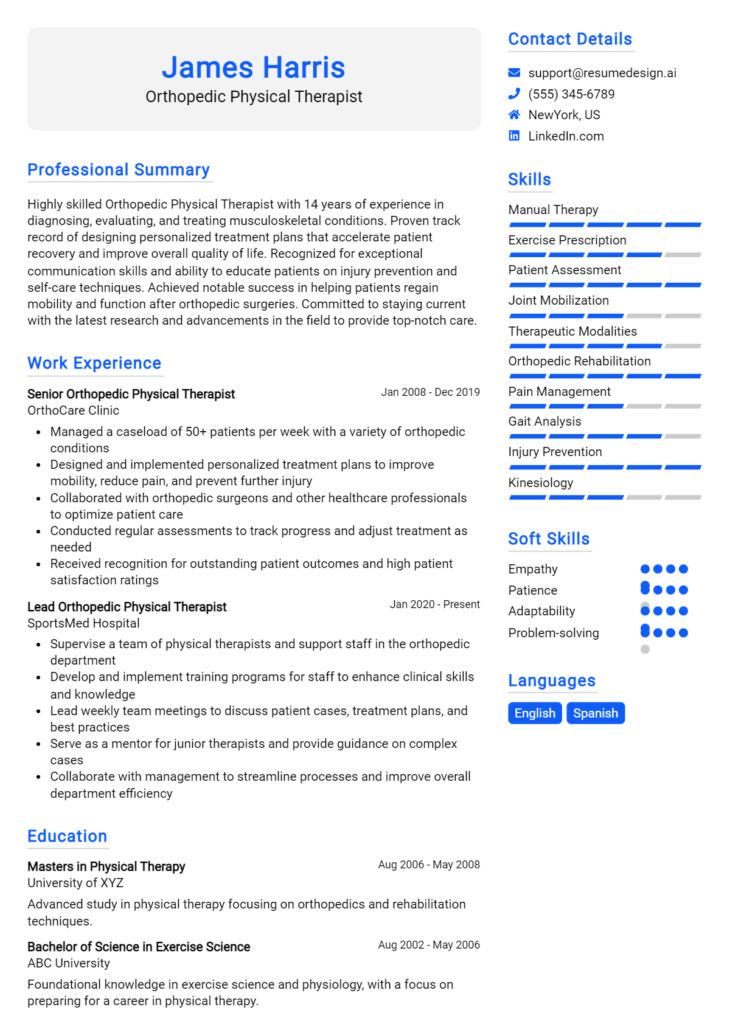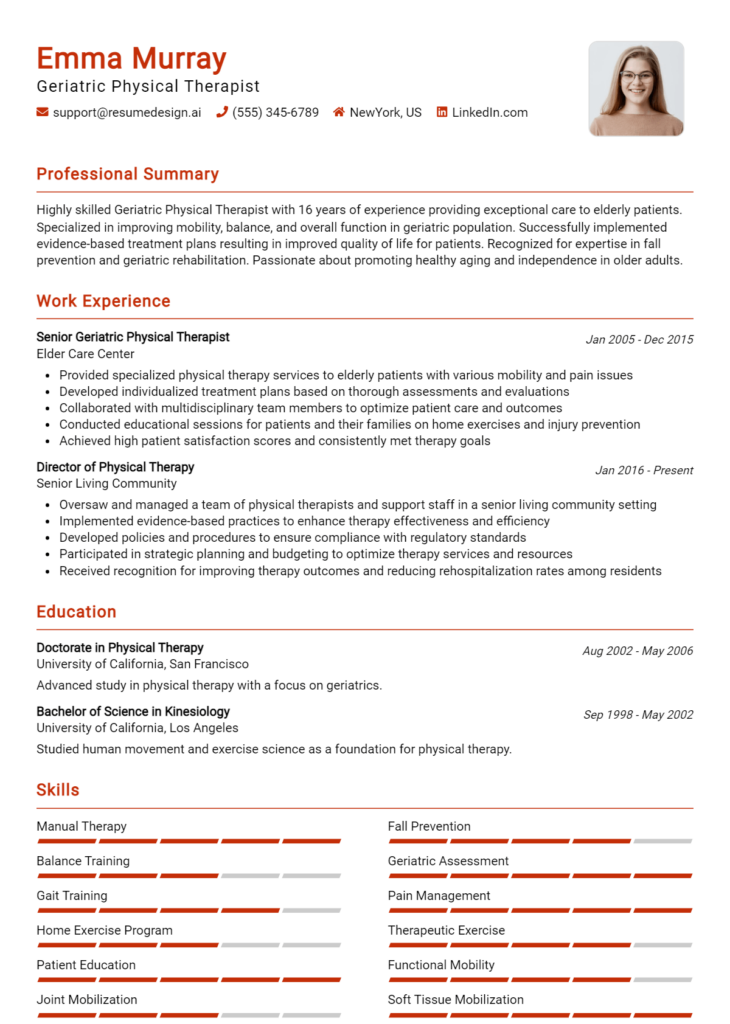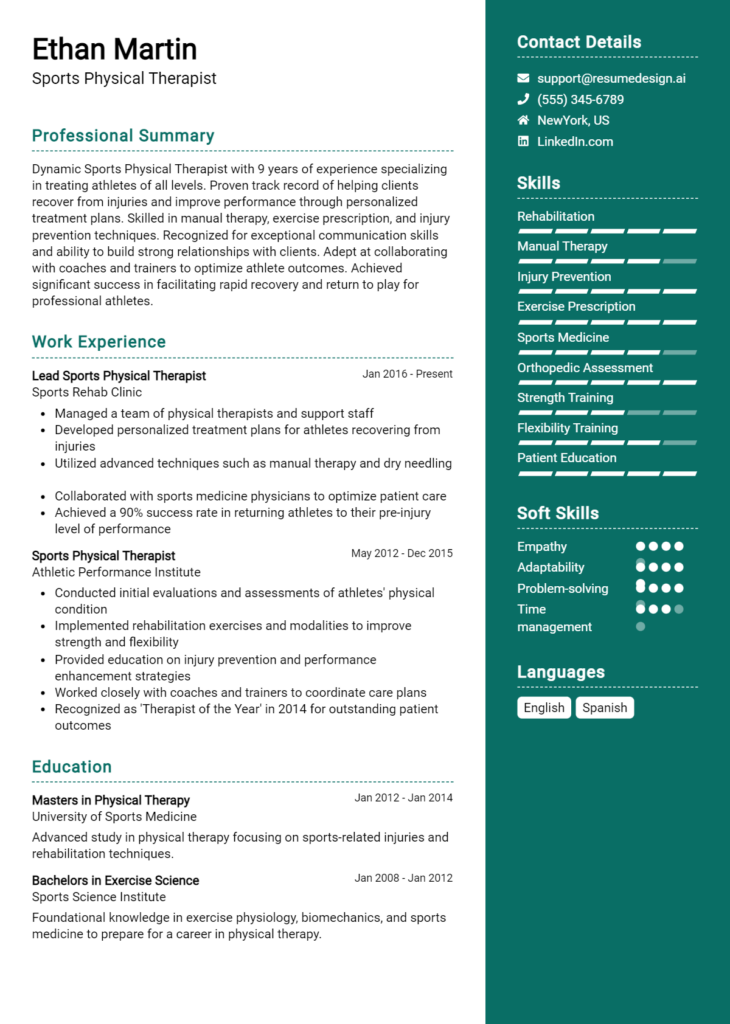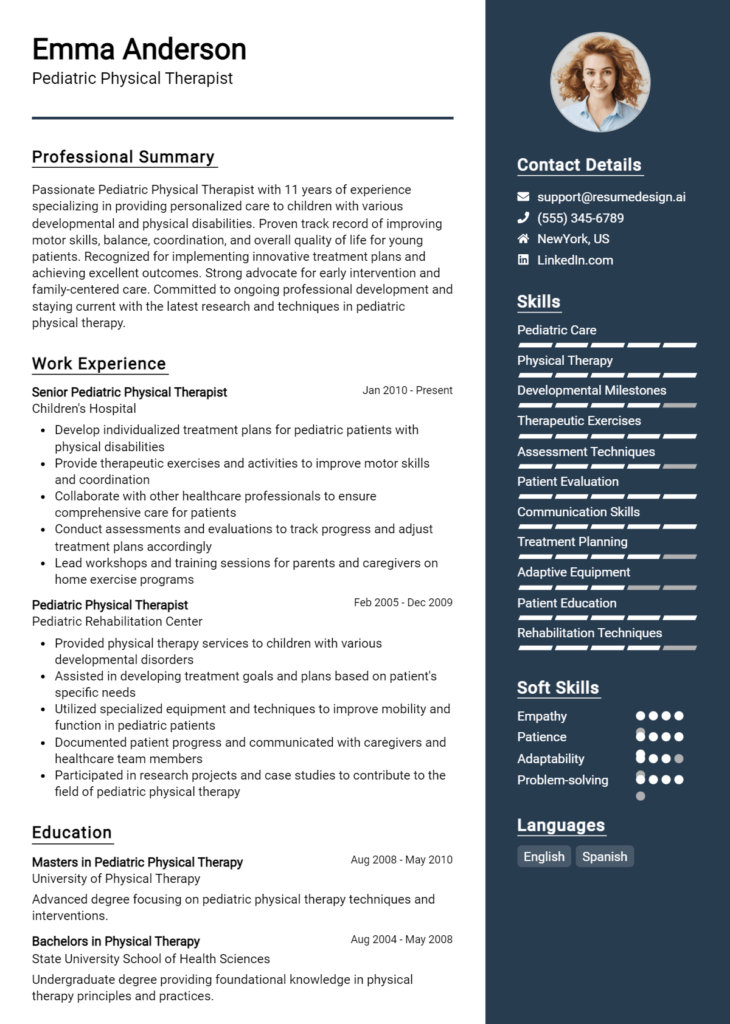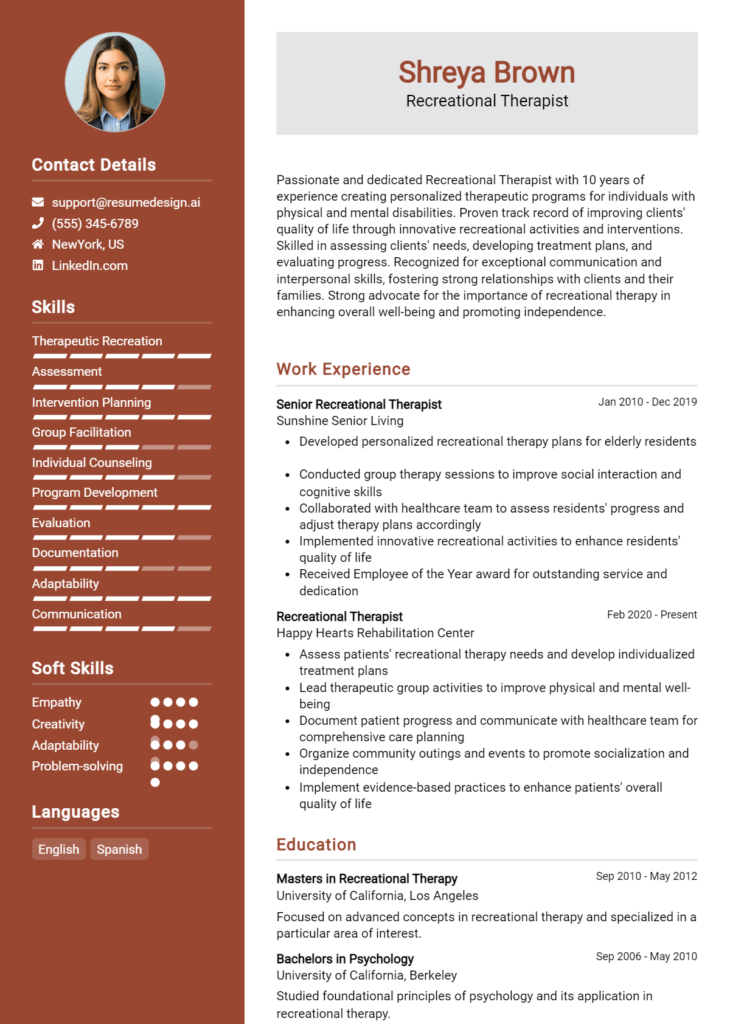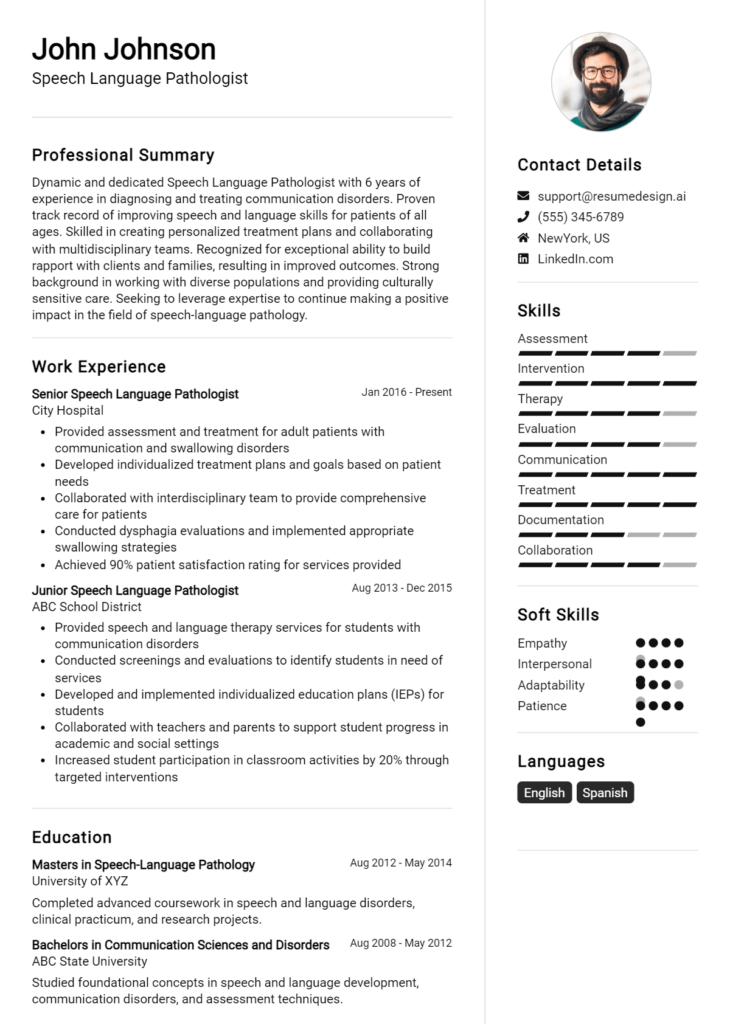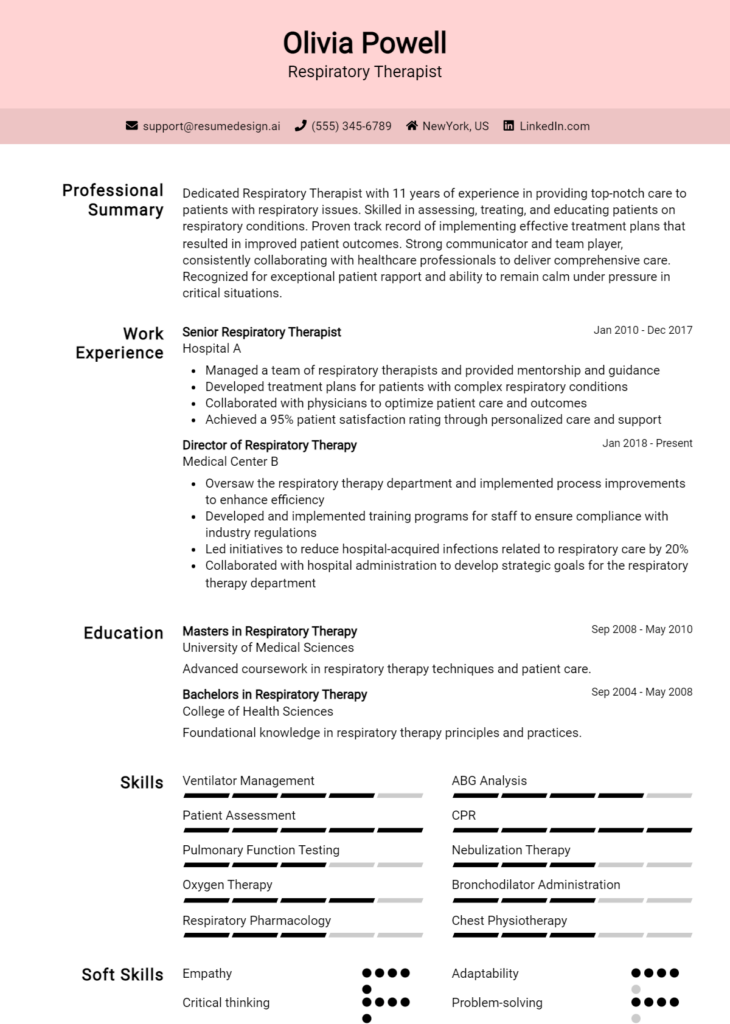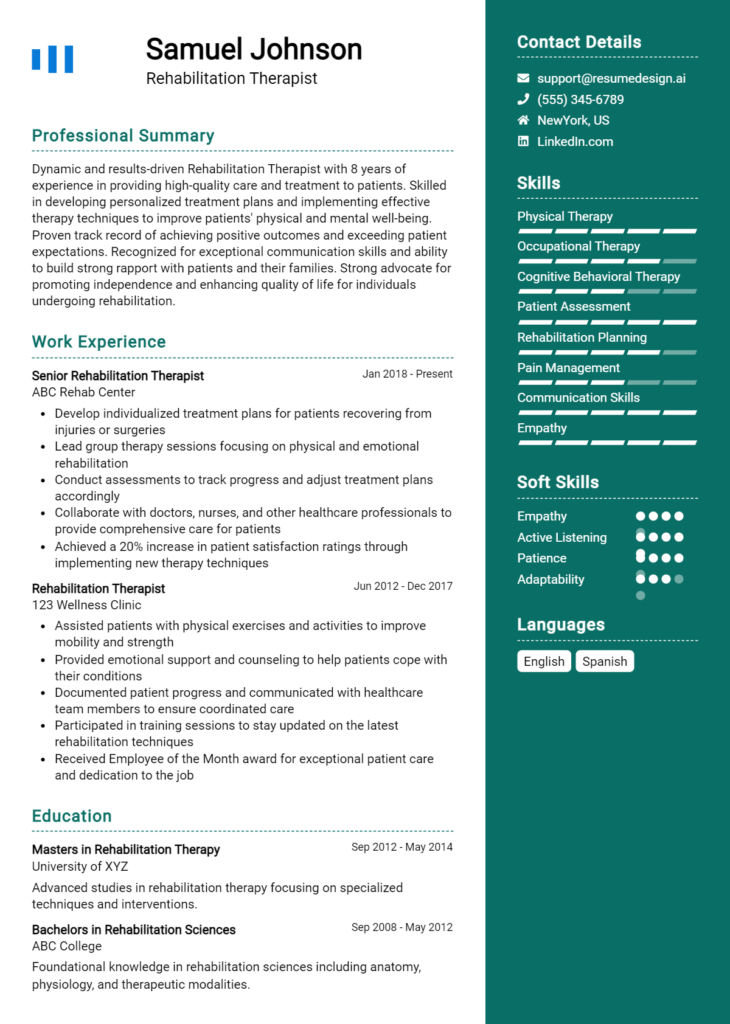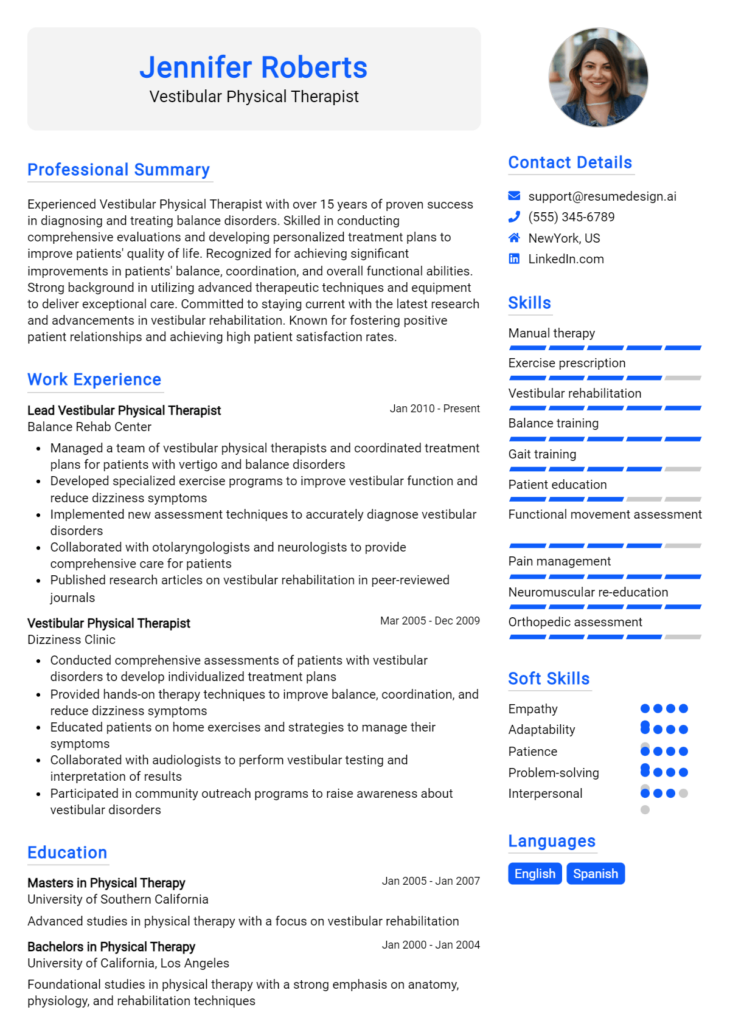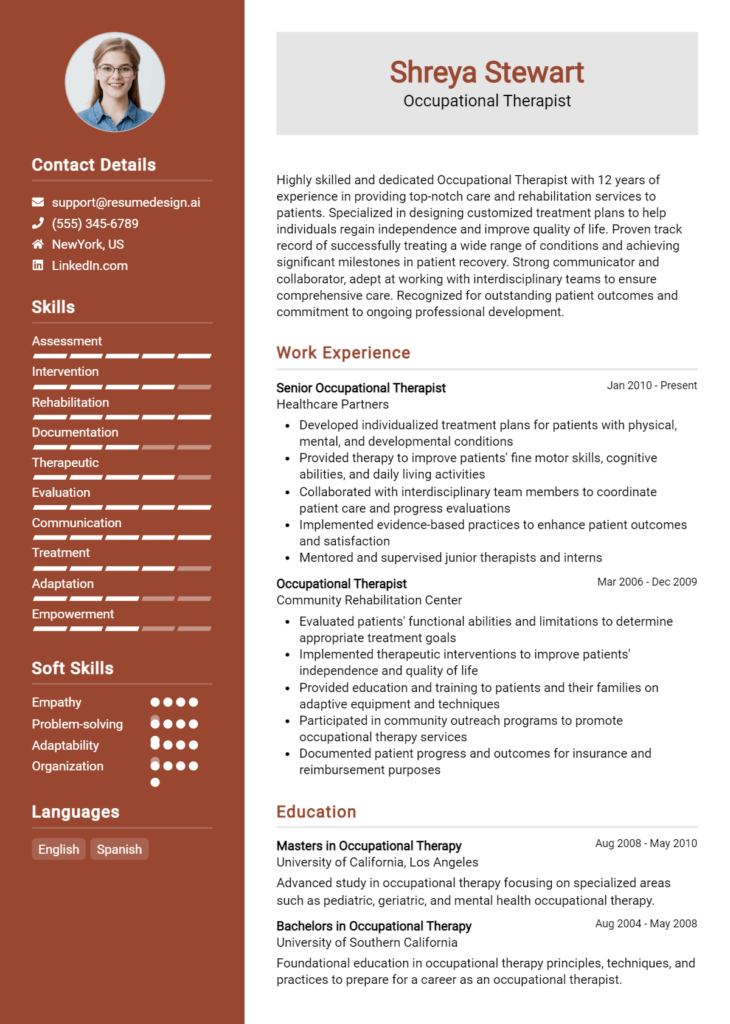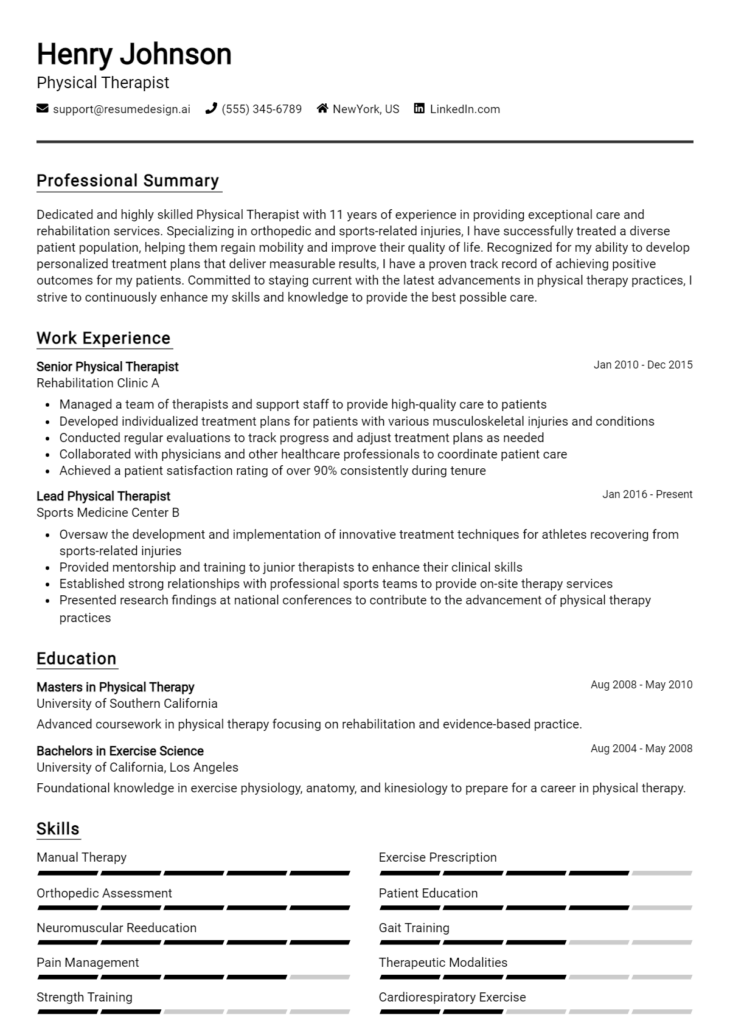Lymphedema Therapist Core Responsibilities
A Lymphedema Therapist plays a crucial role in managing and treating patients with lymphedema, often collaborating with physicians, nurses, and rehabilitation specialists. Key responsibilities include assessing patients, developing personalized treatment plans, and applying therapeutic techniques such as manual lymphatic drainage. Essential skills encompass technical knowledge of lymphedema management, operational efficiency in patient care, and strong problem-solving abilities to adapt treatments effectively. These competencies contribute significantly to the organization's goals of improving patient outcomes and enhancing quality of life. A well-structured resume can effectively showcase these qualifications, highlighting a therapist's expertise and commitment to patient care.
Common Responsibilities Listed on Lymphedema Therapist Resume
- Conducting thorough patient assessments and evaluations
- Designing individualized treatment plans based on patient needs
- Administering manual lymphatic drainage techniques
- Educating patients and families on lymphedema management
- Collaborating with healthcare teams for integrated care
- Monitoring patient progress and adjusting treatment plans
- Documenting treatment outcomes and patient responses
- Providing compression therapy and fitting garments
- Staying updated on the latest lymphedema research and techniques
- Participating in community outreach and education programs
- Maintaining compliance with healthcare regulations and standards
- Advocating for patients' needs within the healthcare system
High-Level Resume Tips for Lymphedema Therapist Professionals
In the competitive field of healthcare, a well-crafted resume is not just a document; it is a vital marketing tool that can set Lymphedema Therapist professionals apart from the crowd. As the first impression a candidate makes on a potential employer, the resume must effectively reflect both the skills and achievements that showcase the therapist’s expertise in managing lymphedema. A thoughtfully designed resume can highlight a therapist’s unique qualifications, clinical experience, and commitment to patient care, making a compelling case for why they are the best fit for the position. This guide will provide practical and actionable resume tips specifically tailored for Lymphedema Therapist professionals, ensuring that their resumes stand out in the job market.
Top Resume Tips for Lymphedema Therapist Professionals
- Tailor your resume to each job description by incorporating relevant keywords and phrases that align with the specific requirements of the position.
- Highlight your clinical experience in lymphedema management, including any specialized training, certifications, or workshops you have completed.
- Quantify your achievements by using metrics, such as the number of patients treated, improvement in patient outcomes, or contribution to program development.
- Showcase your ability to collaborate with other healthcare professionals, highlighting any interdisciplinary teams you have been a part of.
- Include a section dedicated to relevant skills, such as manual lymphatic drainage, compression therapy, and patient education.
- Utilize action verbs to describe your responsibilities and achievements, making your contributions clear and impactful.
- Incorporate any research, publications, or presentations you've participated in that relate to lymphedema treatment and care.
- Keep the format clean and professional, using appropriate headings, bullet points, and a consistent font to enhance readability.
- Consider adding a summary statement at the top of your resume that encapsulates your experience and passion for lymphedema therapy.
- Proofread your resume carefully to eliminate any typos or grammatical errors, ensuring a polished and professional presentation.
By implementing these tips, Lymphedema Therapist professionals can significantly increase their chances of landing a job in this specialized field. A resume that effectively showcases their skills, achievements, and dedication to patient care will resonate with potential employers, making them a standout candidate in the competitive healthcare job market.
Why Resume Headlines & Titles are Important for Lymphedema Therapist
In the competitive field of healthcare, specifically for the role of a Lymphedema Therapist, having a compelling resume headline or title is crucial. A resume headline serves as the first impression to hiring managers, encapsulating a candidate's key qualifications and strengths in a concise manner. An impactful headline not only grabs attention but also communicates the candidate's relevance to the position being applied for. It should be carefully crafted to reflect the specific skills and experiences that align with the job, ensuring it resonates with employers looking for qualified professionals in lymphedema treatment.
Best Practices for Crafting Resume Headlines for Lymphedema Therapist
- Keep it concise and to the point, ideally no longer than 10 words.
- Ensure the title is specific to the role of a Lymphedema Therapist.
- Highlight key qualifications or achievements that set you apart.
- Use industry-relevant keywords to improve visibility.
- Avoid vague terms; be direct about your expertise.
- Consider including your years of experience to bolster credibility.
- Tailor the headline to match the job description of the role you are applying for.
- Showcase your unique selling points, such as certifications or specialized training.
Example Resume Headlines for Lymphedema Therapist
Strong Resume Headlines
Certified Lymphedema Therapist with 5+ Years of Experience
Specialized in Comprehensive Lymphedema Management & Patient Care
Experienced Lymphedema Therapist Committed to Patient-Centered Care
Dedicated Lymphedema Specialist with Proven Treatment Outcomes
Weak Resume Headlines
Therapist Looking for Job
Lymphedema Experience
Healthcare Professional
The strong headlines are effective because they clearly convey the candidate's qualifications, experience, and commitment to the field of lymphedema therapy, making them memorable and relevant to hiring managers. In contrast, the weak headlines fail to impress due to their vagueness and lack of specificity, which do not provide any substantial information about the candidate's capabilities or relevance to the role. Strong headlines not only attract attention but also set the stage for a compelling resume that supports the candidate's qualifications.
Writing an Exceptional Lymphedema Therapist Resume Summary
A well-crafted resume summary is a crucial component for a Lymphedema Therapist, as it serves as the first impression to hiring managers. This brief yet powerful section quickly captures attention by highlighting the candidate's key skills, relevant experience, and notable accomplishments pertinent to the role. An impactful summary is concise, effectively communicates the therapist's unique qualifications, and is tailored to the specific job being applied for, ensuring that it resonates with the employer's needs and expectations.
Best Practices for Writing a Lymphedema Therapist Resume Summary
- Quantify achievements: Use numbers to demonstrate the impact of your work, such as the number of patients treated or improvement in patient outcomes.
- Focus on specific skills: Highlight skills that are directly relevant to lymphedema therapy, such as manual lymphatic drainage, patient education, and treatment planning.
- Tailor the summary: Customize the summary for each job application by incorporating keywords and phrases from the job description.
- Highlight certifications: Mention any relevant certifications or training that enhance your qualifications as a lymphedema therapist.
- Keep it concise: Aim for 2-4 sentences that are impactful and provide a snapshot of your professional profile.
- Showcase patient outcomes: Emphasize your ability to improve patients’ quality of life through effective treatment strategies.
- Use active language: Employ action verbs to convey your contributions and effectiveness in previous roles.
- Reflect your passion: Convey your commitment to helping patients manage lymphedema, which can set you apart from other candidates.
Example Lymphedema Therapist Resume Summaries
Strong Resume Summaries
Compassionate and skilled Lymphedema Therapist with over 5 years of experience in providing effective treatment and education to over 200 patients. Achieved a 90% patient satisfaction rating and improved patient mobility by 75% through tailored therapy plans.
Certified Lymphedema Therapist with expertise in manual lymphatic drainage and compression therapy. Successfully reduced patient swelling by an average of 50% within three weeks, enhancing overall quality of life for individuals post-surgery.
Dedicated Lymphedema Therapist holding an advanced certification with over 10 years of experience. Developed a comprehensive patient education program that increased compliance with treatment protocols by 40%, resulting in improved health outcomes.
Weak Resume Summaries
I am a Lymphedema Therapist with experience and skills in treating patients.
Seeking a position as a Lymphedema Therapist. I have worked in healthcare and have some knowledge of lymphedema treatment.
The strong resume summaries effectively showcase quantifiable results, specific skills, and direct relevance to the role of a Lymphedema Therapist, demonstrating the candidate's impact and expertise. In contrast, the weak summaries are vague and lack measurable achievements, making it difficult for hiring managers to gauge the candidate's suitability for the position. A strong summary immediately communicates value, while a weak one fails to capture attention or convey the candidate's potential contributions.
Work Experience Section for Lymphedema Therapist Resume
The work experience section of a Lymphedema Therapist resume is pivotal in demonstrating the candidate's technical skills, leadership abilities, and commitment to delivering high-quality care. This section not only highlights specific experiences relevant to lymphedema treatment, but it also showcases the therapist's capability to manage teams, foster collaboration, and implement evidence-based practices. By quantifying achievements and aligning work experiences with industry standards, candidates can effectively illustrate their impact in the field and their dedication to patient outcomes.
Best Practices for Lymphedema Therapist Work Experience
- Focus on quantifiable achievements, such as patient recovery rates or successful treatment plans.
- Highlight specific technical skills relevant to lymphedema therapy, including manual lymphatic drainage and compression therapy.
- Showcase collaborative efforts with other healthcare professionals to enhance patient care.
- Include certifications or specialized training that bolster your expertise in lymphedema management.
- Use action verbs to describe your responsibilities and contributions clearly.
- Tailor your experiences to align with the job description and industry standards.
- Provide context for your achievements, explaining the challenges faced and the solutions implemented.
- Maintain a clear and concise format to ensure readability and professionalism.
Example Work Experiences for Lymphedema Therapist
Strong Experiences
- Developed and implemented a comprehensive lymphedema management program that increased patient satisfaction ratings by 30% over one year.
- Led a team of five therapists to standardize treatment protocols, resulting in a 40% improvement in patient recovery times.
- Conducted educational workshops for patients and caregivers, improving self-management skills and adherence to therapy plans, evidenced by a 25% reduction in follow-up visits.
- Collaborated with oncologists to create individualized care plans for post-surgery lymphedema patients, leading to a 20% decrease in complications.
Weak Experiences
- Worked with patients to help manage lymphedema.
- Assisted in therapy sessions and provided support to senior therapists.
- Participated in team meetings about patient care.
- Helped with paperwork related to patient treatments.
The examples provided illustrate the distinction between strong and weak experiences. Strong experiences are characterized by specific, quantifiable outcomes that showcase the therapist's technical capabilities and leadership roles within a team. They highlight significant impacts on patient care and demonstrate the ability to collaborate effectively with other healthcare professionals. Conversely, weak experiences lack detail and measurable achievements, making it difficult for potential employers to assess the candidate's contributions and effectiveness in their role.
Education and Certifications Section for Lymphedema Therapist Resume
The education and certifications section of a Lymphedema Therapist resume plays a crucial role in establishing the candidate's qualifications and expertise in the field. This section not only showcases the academic background of the candidate but also highlights industry-relevant certifications and commitment to continuous learning. By including pertinent coursework, certifications, and specialized training, candidates can significantly enhance their credibility and demonstrate their alignment with the specific requirements of the Lymphedema Therapist role. A well-structured education and certifications section can set a candidate apart in a competitive job market.
Best Practices for Lymphedema Therapist Education and Certifications
- Prioritize relevant degrees in fields such as physical therapy, nursing, or occupational therapy.
- Include certifications specifically related to lymphedema management, such as CLT (Certified Lymphedema Therapist).
- Highlight any specialized training programs or workshops focused on lymphedema treatment techniques.
- List relevant continuing education courses that demonstrate ongoing professional development.
- Ensure that all certifications are current and reflect the latest standards in the industry.
- Be specific about the level of education achieved (e.g., Master's, Bachelor's) and the institutions attended.
- Include any professional affiliations or memberships in relevant organizations.
- Tailor the section to align with the job description and highlight the most relevant qualifications.
Example Education and Certifications for Lymphedema Therapist
Strong Examples
- Master of Science in Physical Therapy from XYZ University, 2020
- Certified Lymphedema Therapist (CLT) through the Lymphology Association of North America, 2021
- Completed Advanced Lymphedema Management Workshop, 2022
- Continuing Education: "Innovative Techniques in Lymphedema Treatment," 2023
Weak Examples
- Bachelor of Arts in History, ABC College, 2015
- Basic CPR Certification (not specific to healthcare), 2019
- Outdated Lymphedema Certification (expired in 2020)
- General fitness training course, 2021
The strong examples listed are considered effective because they directly relate to the role of a Lymphedema Therapist, showcasing relevant degrees and specialized certifications that are up-to-date. In contrast, the weak examples highlight qualifications that lack relevance to the field of lymphedema therapy, such as degrees in unrelated subjects and outdated or generic certifications that do not enhance the candidate's suitability for the position.
Top Skills & Keywords for Lymphedema Therapist Resume
As a Lymphedema Therapist, your resume must effectively showcase a blend of both hard and soft skills that are crucial for delivering high-quality patient care. The significance of these skills lies in their ability to reflect your expertise, enhance your employability, and demonstrate your capacity to work collaboratively in a healthcare setting. Employers seek therapists who not only possess the technical knowledge required for effective lymphedema management but also exhibit strong interpersonal skills to foster meaningful connections with patients. By strategically highlighting your skills in your resume, you can present yourself as a well-rounded candidate capable of addressing the physical and emotional needs of individuals dealing with lymphedema.
Top Hard & Soft Skills for Lymphedema Therapist
Soft Skills
- Empathy
- Communication
- Active Listening
- Problem Solving
- Team Collaboration
- Time Management
- Adaptability
- Patience
- Critical Thinking
- Cultural Competence
- Conflict Resolution
- Motivational Skills
- Compassion
- Attention to Detail
- Organizational Skills
Hard Skills
- Manual Lymphatic Drainage Techniques
- Compression Therapy Application
- Patient Assessment and Evaluation
- Knowledge of Lymphedema Treatment Protocols
- Wound Care Management
- Education and Training on Self-Management Techniques
- Use of Lymphedema Measurement Tools
- Understanding of Anatomy and Physiology
- Treatment Plan Development
- Familiarity with Medical Software and Documentation
- Evidence-Based Practice Application
- Research Skills
- Knowledge of Insurance and Billing Procedures
- Patient Documentation and Record Keeping
- Community Resource Navigation
Incorporating these relevant skills into your resume, alongside your work experience, will help you stand out in the competitive field of lymphedema therapy.
Stand Out with a Winning Lymphedema Therapist Cover Letter
Dear [Hiring Manager's Name],
I am writing to express my interest in the Lymphedema Therapist position at [Company Name] as advertised on [where you found the job listing]. With a Master’s degree in Physical Therapy and over five years of specialized experience in lymphedema management, I am confident in my ability to contribute effectively to your team and provide exceptional care to your patients. My passion for helping individuals improve their quality of life through targeted therapeutic interventions aligns perfectly with the mission of [Company Name].
In my previous role at [Previous Company Name], I developed and implemented individualized treatment plans for patients suffering from lymphedema, utilizing advanced techniques such as manual lymphatic drainage, compression therapy, and exercise programs. My commitment to patient education has significantly improved compliance rates, leading to better outcomes for my clients. I have also collaborated closely with oncologists and surgical teams to ensure a comprehensive approach to patient care, which I understand is a value shared by [Company Name].
I am particularly impressed by [Company Name]'s dedication to innovation in patient care and your focus on community outreach. I believe my skills in conducting workshops and training sessions on lymphedema awareness would be a valuable addition to your initiatives. I am eager to bring my expertise in therapeutic practices and patient-centered care to your esteemed organization and help enhance the lives of those affected by this condition.
Thank you for considering my application. I look forward to the opportunity to discuss how my background, skills, and enthusiasms can contribute to the outstanding work at [Company Name]. Please feel free to contact me at [Your Phone Number] or [Your Email Address] to schedule a conversation.
Sincerely,
[Your Name]
Common Mistakes to Avoid in a Lymphedema Therapist Resume
When crafting a resume as a Lymphedema Therapist, it's essential to present your qualifications and experience in the most effective manner. However, many candidates fall into common pitfalls that can detract from their professional image. Avoiding these mistakes can significantly enhance your chances of landing an interview. Here are some common missteps to watch out for:
Neglecting Specific Skills: Failing to highlight specialized skills, such as manual lymphatic drainage or compression therapy techniques, can leave your resume lacking. Clearly articulate your expertise in these areas.
Using Generic Language: Using vague terms like "helped patients" instead of specific actions can weaken your impact. Opt for strong action verbs and quantify your achievements to showcase your contributions more effectively.
Ignoring Certifications and Training: Not including relevant certifications, such as the Certified Lymphedema Therapist (CLT) designation, may lead hiring managers to overlook your qualifications. Always list your certifications prominently.
Overloading with Irrelevant Experience: Including unrelated job experience can dilute your resume's focus. Tailor your work history to emphasize roles that directly relate to lymphedema therapy and patient care.
Failing to Customize for Each Application: Sending out a one-size-fits-all resume can be detrimental. Customize your resume for each job application to reflect the specific requirements and values of the organization.
Neglecting Continuing Education: Not mentioning ongoing education or additional training can suggest stagnation. Highlight any workshops, seminars, or courses you've completed to show your commitment to professional growth.
Poor Formatting: A cluttered or difficult-to-read resume can turn off potential employers. Use clear headings, bullet points, and consistent formatting to enhance readability and professionalism.
Omitting Soft Skills: Focusing solely on technical skills and neglecting soft skills like empathy, communication, and teamwork can be a mistake. These qualities are essential in building rapport with patients and collaborating with healthcare teams.
Conclusion
As a Lymphedema Therapist, your role is crucial in helping patients manage their condition and improve their quality of life. This article covered several key aspects of the role, including the importance of specialized training, effective treatment techniques, and the need for compassionate patient care. We also discussed the growing demand for certified lymphedema therapists and how continued education can enhance your skills and career prospects.
To thrive in this rewarding field, having a well-crafted resume is essential. A standout resume not only highlights your qualifications but also showcases your unique experiences that make you an ideal candidate for lymphedema therapy positions.
We encourage you to take the next step in your professional journey by reviewing your Lymphedema Therapist resume. Consider utilizing available resources to enhance your application materials:
- Explore resume templates designed specifically for healthcare professionals.
- Use the resume builder to create a polished and professional resume tailored to your skills and experiences.
- Check out resume examples to inspire your own resume design and content.
- Don’t forget to complement your resume with a compelling cover letter using our cover letter templates.
Investing time in your resume can significantly boost your chances of landing your desired position as a Lymphedema Therapist. Start refining your application today!

